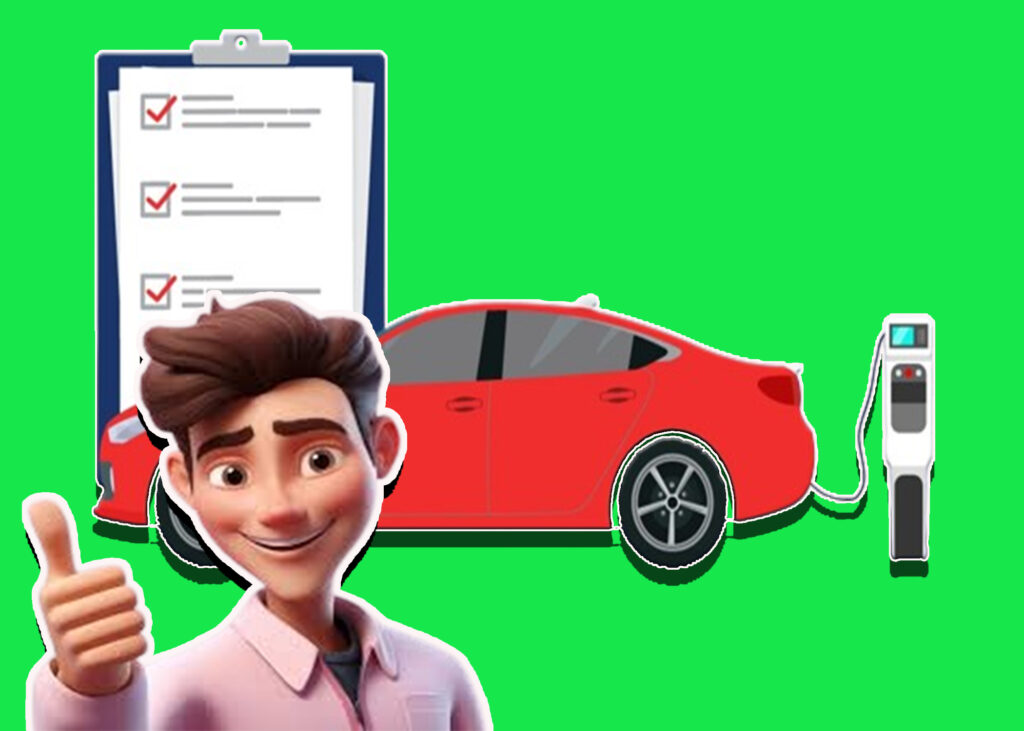Before purchasing a vehicle, you should consider if hybrids are more expensive to insure and shop around to make an informed decision. Generally, the cost of insurance for hybrids is more expensive to insure than that of a gas version of the same size and specifications.

Insurance companies are aware that consumers who purchase hybrid vehicles typically drive farther and save more money on gas. This implies that increased insurance premiums will offset a portion of your fuel savings. In addition, the average premium increase for hybrid vehicles over gas-only vehicles is 7% to 11%. However, the precise prices may differ depending on the make, model, and year of the automobile.
What is a Hybrid Vehicle
A hybrid is an automobile that incorporates an electric engine operated by batteries with a gasoline or diesel engine. You may have the best of both kinds with a hybrid automobile. Additionally, you may have a car with a blast engine and a fully electric drivetrain that reduces carbon discharges while giving tons of driving range and performance.
In hybrid mode, which is the default, the car can be moved by its electric engine, its gas motor, or both. For longer journeys, fuel mode, also known as energy mode, offers you the performance and power you need. Furthermore, the benefit is continuous control between modes that enhances energy productivity and allows you to customize your car for the type of drive you select.
How Does Hybrid Car Insurance Work
An electric and gas engine are combined in a hybrid vehicle. To move the car, they cooperate. It makes use of a mechanism to recover energy from the braking system. Generally, they don’t have all of the electricity. Hybrid car insurance operates in the same way as standard coverage.
Drivers must carry third-party liability insurance with a minimum of $200,000. In addition, uninsured motorist coverage, direct compensation property damage (DCPD), and accident payouts are required. To raise plan limitations, most individuals also add optional coverage. Furthermore, including collision or comprehensive coverage is usual. Also, ask your insurer about the coverage limitations that apply to hybrid automobiles.
What Type of Insurance Do You Need for a Hybrid Vehicle
To comply with state rules, hybrid cars, like any other type of car, need to retain a minimum payment of insurance policy. Additionally, liability insurance has coverage for property failures and injuries due to accidents induced by your fault. Moreover, it’s an ideal opinion to obtain comprehensive collision coverage to cover your hybrid automobile against theft, destruction, and wreck damage.
How Much Does Hybrid Car Insurance Cost
Insurance rates for hybrids can differ from 7% to 11% from those for a specific gas-powered car. To comprehend this higher pricing point, an additional $70 to $110 may be required for insurance on a hybrid vehicle. Furthermore, this can occur if you were previously paying $1,000 for coverage on a conventional gas-powered vehicle.
In addition, the rates for hybrid auto insurance are decided by the same component as those for common auto insurance:
- Driving history.
- Age and experience.
- Kind of car.
- Types of coverage and deductibles.
- Credit score (unavailable in some states).
- Mileage per year.
- Gender (unavailable in all states).
- Status of marriage.
- Car usage.
- Insurance history.
Why are Hybrids Expensive to Insure
Hybrid insurance rates are increased by greater purchase and maintenance expenses. Rate increases for vehicle insurance may also be attributed to fire hazards and potential longer driving distances.
High expense
Purchasing a hybrid car might cost up to 20% more than purchasing a conventional car using gasoline. Also, the costs for hybrid vehicles vary from around $20,000 for the least expensive versions to more than $100,000 for premium ones.
Repair expenses
Because of the relationship of the gearbox, combustion, and electric engine, hybrids can be more difficult and expensive to insure. A malfunction in one part may influence the others, necessitating professional technicians’ diagnostic work. Additionally, replacing a battery may be expensive between $3,000 and $8,000 mainly if it needs to be fixed after an accident.
It is possible to drive further
Due to their ability to travel farther on less fuel than their more popular gas-powered counterparts, hybrid cars may encourage individuals to drive more frequently. You run a greater risk of being involved in an automobile accident the more time you spend driving. As a result, hybrid drivers now pay higher premiums from auto insurance providers.
Increased fire risk
Because of the tremendous heat produced under the hood by the combination of a gasoline engine, a powerful electric system, and a battery, hybrid cars have a 3.5% risk of catching fire throughout their lifespan. This type of peril raises a warning sign for insurers. Therefore, the expense of this policy for a hybrid will be more than that of a gas-powered automobile.
Furthermore, hybrids may be risky for pedestrians due to how silent this form of vehicle may be. Additionally, a new law requires electric and hybrid cars to emit sound to alert the blind and visually challenged, following a 2010 law for safer streets.
How to Get Hybrid Car Insurance
It’s a good idea to obtain three to five estimates from different insurance companies as you investigate your possibilities. Every insurance provider will require details on you, your car, and its make, model, and year, along with your driving record, date of birth, and driver’s license number.
It might take a while to compile this data for several carriers. Moreover, you may find a customized commercial insurance policy quickly by answering an easy survey about your financial preferences and coverage needs. Furthermore, get a free quotation for a car policy by consulting an agent right now.

